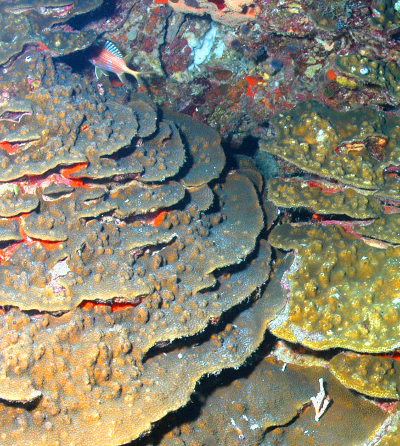Deep reef refuge in WA
 A new study shows deep reefs in Western Australia can be used as a refuge by marine forests from the impacts of ocean warming.
A new study shows deep reefs in Western Australia can be used as a refuge by marine forests from the impacts of ocean warming.
The research found that deep marine forests in Western Australia, formed from large algae, were less affected by an extreme marine heatwave that severely affected shallow ones.
Marine forests are essential marine ecosystems in temperate regions that provide food and refuge for numerous fish and invertebrates, and sustain important Australian fisheries.
In 2011, the coast of Western Australia experienced an extreme marine heatwave, which caused temperature anomalies of up to 5 degrees centigrade.
The consequences of these high temperatures were devastating for the marine environment, in particular coastal marine forests, where they significantly decreased in abundance.
Researchers from the University of WA, examined the deeper marine forests at depths of up to 40 metres in areas offshore from the Abrolhos Islands, Jurien Bay and Rottnest Island to assess if they had declined at the same rate as the shallow reefs.
They found the big changes observed in shallow sites were reduced or marginal in the deep areas at all three locations.
Lead researcher PhD student Anita Giraldo Ospina says identifying areas of refuge where organisms could survive periods of ocean warming has become a research and conservation priority.
“We wanted to find out if deeper areas of the ocean offered some protection against ocean warming events for marine forests,” Ms Ospina said.
“We found that after the 2011 marine heatwave in Western Australia, the abundance and type of species that characterised shallow reefs at depths of 15 metres changed a lot.
“Deeper reefs at around 40 metres, had very minimal change after the marine heatwave, indicating they were less affected by this extreme warming event.
“This provides hope that deep reefs may be areas where organisms can survive the impacts of ocean warming and possibly help the recovery of impacted shallow reefs.”








 Print
Print